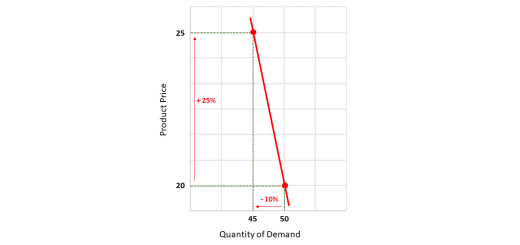Overview and Responsibilities of Audit Committee
- Overview
- Responsibilities of Audit Committee
- Understanding Functions of Audit Committee
- Regulations of Audit Committee
- How can an individual join Audit Committee
- Role of Audit Committee
- FAQs of Audit Committee
Overview of Audit Committee in Corporate Governance
The audit committee assists the board of directors to fulfil its Corporate Governance and overseeing responsibilities concerning the financial reporting process, the audit process, company practice of internal controls, the performance of the internal audit function, independence of the external auditors, and compliance with relevant laws and regulations.
The audit committee’s supervisory duties are outlined in regulations set forth by the Securities and Exchange Commission (SEC) and the stock exchanges where a company’s stocks are traded, such as the London Stock Exchange (LSEG), New York Stock Exchange (NYSE) and Nasdaq. Additionally, the audit committee may assume responsibilities indirectly due to mandates for independent auditors established by the Public Company Accounting Oversight Board (PCAOB). Throughout, emphasis is placed on adherence to SEC, NYSE, Nasdaq, and PCAOB regulations.
The audit committee consists of members of a company’s board of directors. The Audit Committee is made up of typically three non-executive directors which at least one should have recent financial experience.
The creation of an effective audit committee is an important way of enhancing corporate governance and oversight. The committee reviews the results of an audit with management and external auditors.
Responsibilities of Audit Committee
Following are the General Responsibilities of Audit Committee,
- Responsibilities of Financial Reporting Process
- Analysis of the important judgments and issues made by management in the financial reports.
- Review the quarterly and audited annual financial statements of the company.
- Ensure that the financial reports are accurate.
- Discuss and analyze the complex accounting estimates and judgments made by management
- Discuss the implementation of new accounting principles or regulations
- Interact regularly with senior financial management (CFO, Financial Controller, etc..) and have authority to comment on the capacities of these executives.
- Responsibilities of Overseeingthe External Auditor
- Audit committees usually approve the selection of the external auditor.
- Audit committees usually approve if a change of the external auditor happens.
- Ensure the external auditor is independent with no conflicts of interest with the auditor’s ability to issue its opinion on the financial statements.
- Audit committees meet separately with external auditors to discuss matters that the committee or auditors believe should be discussed privately.
- Responsibilities of Overlook the Regulatory Compliance, Policies, and Processes.
- Ensure that appropriate policies and processes are in place for the identification and prevention of fraud/corruption.
- Discuss actions or regulatory compliance risks with management.
- Verify that managers are using the correct internal policies for financial reporting related to; business regulations, financial reporting policies, accounting policies, and risk control policies.
- Responsibilities of Overseeing the Internal Auditor
- Appoints, overlooks, and compensates the independent auditor.
- evaluate their performance, and include any performance-related issues in the report presented to the board.
- hold separate meetings with the internal auditors if required.
- responsible for the appointment, compensation, and oversight of the work of the auditor.
Understanding Functions of Audit Committee
The audit committee plays a critical role in promoting transparency, accountability, and integrity in financial reporting and governance processes within organizations. Following are the functions of audit committee,
- Composition and Independence
- The audit committee typically consists of independent directors who do not have any significant financial interests in the company.
- Independence ensures objectivity in overseeing financial reporting and audit processes.
- Members often possess financial expertise or experience in relevant fields such as accounting, finance, or auditing.
- Financial Reporting Oversight
- This is mainly with reviewing and approving financial statements, ensuring accuracy, completeness, and compliance with accounting standards and regulatory requirements.
- Assessing the adequacy and consistency of financial disclosures, including footnotes and management discussions.
- Monitoring the quality of accounting policies and practices.
- Internal Control Evaluation
- Assessing the effectiveness of the organization’s internal control systems in safeguarding assets, preventing fraud, and ensuring compliance with laws and regulations.
- Reviewing reports from internal audit functions and management on control deficiencies and remediation efforts.
- Overseeing the implementation of recommendations to strengthen internal controls.
- External Audit Oversight
- Selecting, appointing, and overseeing the work of external auditors.
- Reviewing the auditor’s independence, objectivity, and qualifications.
- Approving the scope of the audit engagement and audit fees.
- Discussing audit findings and recommendations with auditors and management.
- Risk Management
- Identifying and evaluating key financial risks facing the organization, including those related to financial reporting, fraud, and compliance.
- Reviewing risk management policies and procedures, and ensuring appropriate risk mitigation strategies are in place.
- Monitoring emerging risks and changes in the business environment that may impact financial reporting.
- Whistleblower Mechanism
- Establishing and overseeing a mechanism for employees and others to report concerns about financial misconduct, fraud, or other unethical behavior.
- Ensuring confidentiality and protection for whistleblowers from retaliation.
- Reviewing reports of alleged misconduct and ensuring appropriate investigations and corrective actions are taken.
- Legal and Regulatory Compliance
- Monitoring compliance with laws, regulations, and corporate governance guidelines related to financial reporting, disclosure, and audit processes.
- Staying abreast of regulatory developments and changes in accounting standards that may impact the organization.
- Reviewing the effectiveness of compliance programs and addressing any identified deficiencies.
- Communication and Transparency
- Facilitating communication between management, the board of directors, external auditors, and other stakeholders regarding financial reporting matters.
- Providing regular updates to the board on audit committee activities, significant financial risks, and control issues.
- Enhancing transparency through clear and comprehensive reporting in the organization’s annual proxy statement and other communications.
- Continuous Improvement
- Continuously evaluating and improving the effectiveness of the organization’s financial reporting processes, internal controls, and risk management practices.
- Conducting periodic assessments of the audit committee’s performance and effectiveness.
- Implementing best practices and lessons learned from audit committee activities and external benchmarking.
What are the Regulations of Audit Committee
Regulations governing audit committees vary depending on the jurisdiction and the exchange where a company’s shares are listed. However, there are common principles and regulations that audit committees typically adhere to. Here are some key regulations:
1. Securities and Exchange Commission (SEC) Regulations
The SEC regulates audit committees of publicly traded companies in the United States. Regulations include requirements for independence, composition, and responsibilities of audit committees. The Sarbanes-Oxley Act of 2002 (SOX) introduced significant reforms, including mandates for audit committee independence, financial expertise of members, oversight of external auditors, and whistleblower protection.
2. Stock Exchange Listing Requirements
Stock exchanges such as the New York Stock Exchange (NYSE) and Nasdaq have their own listing requirements for audit committees. These requirements often mirror or complement SEC regulations and may include rules regarding committee composition, independence, and responsibilities.
3. Public Company Accounting Oversight Board (PCAOB) Standards
The PCAOB sets auditing and quality control standards for public company auditors in the United States. Audit committees indirectly follow PCAOB standards through their oversight of external auditors. PCAOB standards include requirements for auditor independence, audit quality, and reporting.
4. Corporate Governance Codes
Many countries have corporate governance codes or guidelines that include recommendations or requirements for audit committees. These codes are often issued by regulatory authorities or industry associations and aim to promote best practices in corporate governance.
5. International Standards
For companies listed on international exchanges or operating in multiple jurisdictions, there may be additional international standards or guidelines that audit committees must consider. These standards may come from organizations such as the International Organization of Securities Commissions (IOSCO) or the International Auditing and Assurance Standards Board (IAASB).
6. Other Regulatory Requirements
Depending on the industry or sector in which a company operates, there may be additional regulatory requirements that audit committees must comply with. For example, financial institutions may be subject to specific regulations related to risk management, internal controls, and financial reporting.
How can an individual join Audit Committee
To join an audit committee, individuals typically need to meet certain qualifications and requirements. Firstly, candidates should possess relevant expertise or experience in areas such as accounting, finance, auditing, or risk management. This expertise ensures that members can effectively understand and evaluate financial statements, internal controls, and audit processes. Additionally, independence is a crucial requirement for audit committee members. They should be independent of the company’s management and free from any conflicts of interest that could compromise their objectivity. Independence helps ensure that audit committees can provide impartial oversight of financial reporting and audit activities.
Furthermore, candidates must demonstrate a commitment to ethical conduct and corporate governance principles. They should have a strong understanding of legal and regulatory requirements governing financial reporting and disclosure. Effective communication skills are also essential for audit committee members to facilitate discussions with management, external auditors, and other stakeholders. Additionally, candidates should be willing to dedicate the time and effort necessary to fulfill their responsibilities as audit committee members. This may involve attending regular meetings, reviewing financial reports and audit findings, and staying informed about emerging issues and best practices in corporate governance.
Finally, individuals seeking to join an audit committee may need to undergo a nomination or selection process, which could involve approval by the company’s board of directors or shareholders. Overall, candidates for audit committee positions should possess the requisite expertise, independence, integrity, and commitment to fulfill their duties effectively and contribute to the committee’s objectives of promoting transparency, accountability, and integrity in financial reporting and oversight processes.
Role of Audit Committee
The audit committee plays a crucial role in ensuring transparency, accountability, and integrity within an organization’s financial reporting processes. The audit committee acts as a vital link between management, the board of directors, and external stakeholders, ensuring that financial information is accurate, reliable, and transparent, thus enhancing investor confidence and protecting the interests of shareholders.
- Overseeing Financial Reporting
One of the core responsibilities of the audit committee is to oversee the financial reporting process. This involves reviewing financial statements to ensure accuracy and compliance with accounting standards and regulatory requirements. - Monitoring Internal Controls
The committee evaluates the effectiveness of the organization’s internal control systems. This includes assessing the adequacy of controls designed to safeguard assets, prevent fraud, and ensure compliance with laws and regulations. - Engaging External Auditors
The audit committee selects, appoints, and oversees the work of the external auditors. They ensure that auditors are independent, objective, and have sufficient resources to perform their duties effectively. The committee also reviews and approves the audit scope and fees. - Risk Management
Assessing and managing risk is another important role of the audit committee. They identify key financial risks facing the organization and ensure appropriate measures are in place to mitigate these risks. - Whistleblower Mechanism
Establishing and overseeing a mechanism for employees and others to report concerns about financial misconduct, fraud, or other unethical behavior without fear of retaliation. - Legal and Regulatory Compliance
The committee monitors compliance with laws, regulations, and corporate governance guidelines related to financial reporting and disclosure. - Communication and Transparency
Providing a channel for communication between management, the board of directors, external auditors, and other stakeholders regarding financial reporting matters. - Continuous Improvement
Continuously assessing and improving the effectiveness of the organization’s financial reporting processes, internal controls, and risk management practices.
FAQs of Audit Committee
What is an audit committee?
An audit committee is a subcommittee of a company’s board of directors responsible for overseeing financial reporting, internal controls, external audits, and risk management processes.
What is the role of an audit committee?
The audit committee’s role includes ensuring the accuracy and integrity of financial reporting, overseeing the external audit process, evaluating internal controls, managing financial risks, and promoting compliance with laws and regulations.
Who serves on an audit committee?
Audit committee members are typically independent directors with financial expertise or experience in relevant fields such as accounting, finance, or auditing. They are appointed by the board of directors.
How often does the audit committee meet?
The frequency of audit committee meetings varies depending on the organization’s needs and regulatory requirements. Typically, audit committees meet quarterly or as needed to fulfill their responsibilities.
What are the key responsibilities of an audit committee?
Key responsibilities include reviewing financial statements, assessing internal controls, selecting and overseeing external auditors, managing financial risks, monitoring compliance with laws and regulations, and overseeing the whistleblower mechanism.
How does the audit committee ensure independence and objectivity?
Audit committees consist of independent directors who do not have significant financial interests in the company. They oversee the work of external auditors, ensuring their independence and objectivity in evaluating the company’s financial statements.
What is the relationship between the audit committee and external auditors?
The audit committee selects, appoints, and oversees the work of external auditors. They review audit plans, evaluate audit findings, discuss any significant issues or concerns with auditors, and ensure the effectiveness of the audit process.
How does the audit committee handle conflicts of interest?
Audit committee members are required to disclose any potential conflicts of interest and recuse themselves from discussions or decisions where a conflict exists. Transparency and ethical conduct are essential to maintaining the committee’s integrity.
How does the audit committee contribute to corporate governance?
The audit committee plays a vital role in corporate governance by promoting transparency, accountability, and integrity in financial reporting and oversight processes. It helps safeguard the interests of shareholders and enhance investor confidence.
How can individuals learn more about serving on an audit committee?
Individuals interested in serving on an audit committee can seek education and training opportunities in accounting, finance, or corporate governance. They can also network with current audit committee members and seek guidance from professional organizations and regulatory bodies.
Further Reading:


